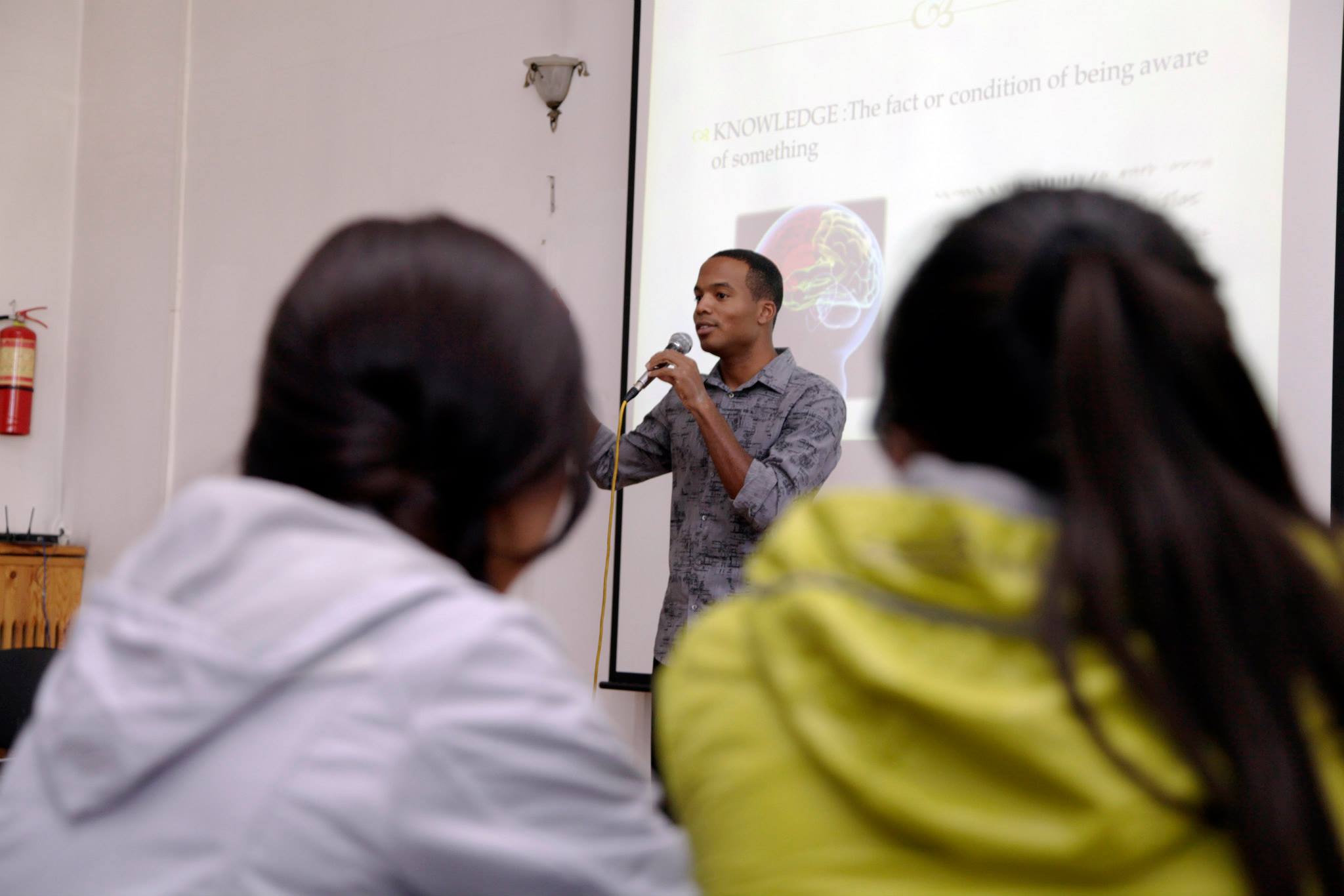NGA Lecture Series: A ‘Varied Pizza’
October 22, 2014

Every Monday, the New Generation Academy (NGA) at the American University of Central Asia hosts a guest lecturer from 4:00 o’clock until 6:00. The lectures are open to anyone interested, and are held in room 403 in the AUCA Campus.
With myriad lectures available on campus, why is it important for NGA students to have their own series of lectures? “Because the kids are coming from all over Asia, we are trying to find common interest points between students from Afghanistan, Turkmenistan, and other countries including Kyrgyzstan,” explained NGA Academic Director Dr. Elisabeta Zelinka.
Those common interests are important, but in organizing the lectures, Dr. Zelinka outlined three other fundamental goals, “The first is the simplest…to broaden their vocabulary and to polish their listening and deductive skills. The 2nd is to vary the people they listen to. The more you open your mind…the more flexible you become. Last but not least, developing social skills.” Those social skills however are more important than just finding common interests; the lectures provide a platform through which to teach the students appropriate professional behavior. Dr. Zelinka defined the habit of talking over each other and not waiting to be called on to ask questions, as “bazaar-talking.” Not only was “bazaar-talking” an issue in the beginning, but simple etiquette such as turning off phones and arriving on time are learned eventually as well. While easy to overlook, these kinds of lessons can have a huge impact on future career and study opportunities for the students. These are all tangential benefits, but of course the students also learn about the topics discussed; NGA student Farhad Musazov enjoys the lectures because he thinks it is a way to, “discover something new for us… it’s very important because our speakers always are very experienced…they always give us advice, support, and help.”
The lectures are always varied by both the background of the speaker and topic, and not by coincidence. Dr. Zelinka told us that she “tries very hard to internationalize…the lectures,” easily evidenced by a quick glance at the lecture series schedule. It features AUCA staff and professors but also speakers from the United Nations Development Programme, the European Union Delegation, the United States Embassy, filmmakers and so on. Other topics are more immediately relevant. One of the next topics will be “Stress and Time Management in the 21st Century,” the most pressing of issues for new university students, if perhaps not as globally contentious as sustainable development, a past lecture topic presented by Professor Martin Ossewaarde. AUCA President Andrew Wachtel gave the first lecture in the series, “Getting the Most of Your College Education,” with Farhad declaring it his favorite so far; an omen if there ever was one of a future politician.
In the less distant future, more varied lectures are planned. This December, there are plans for NGA faculty member Richard Cezar to give a special lecture. Special because it will not only be a lecture, but he and other local musicians will put on a performance for the attendees, if all goes according to plan…I took as my model Bard College, we had such a good time during the guest lectures,” said Dr. Zelinka, who received her Bachelor’s from Bard in 2003, regarding how lecturers and topics are selected.
And how are NGA students encouraged to attend, and to actively participate in asking questions of the presenter? Sometimes small rewards are given to students who pose several questions or participate the most, which often makes future lectures run longer because of how many questions are then asked in pursuit of the prize. But this is just icing, as the lectures themselves are incentive enough to go, by virtue of how interested the students are in learning and being part of a larger community of learners and students. Oh, and it helps that attendance is mandatory.
If you are interested in learning more about the NGA guest lecture series, please visit the NGA office, room 323, or contact nga@auca.kg for more information.
